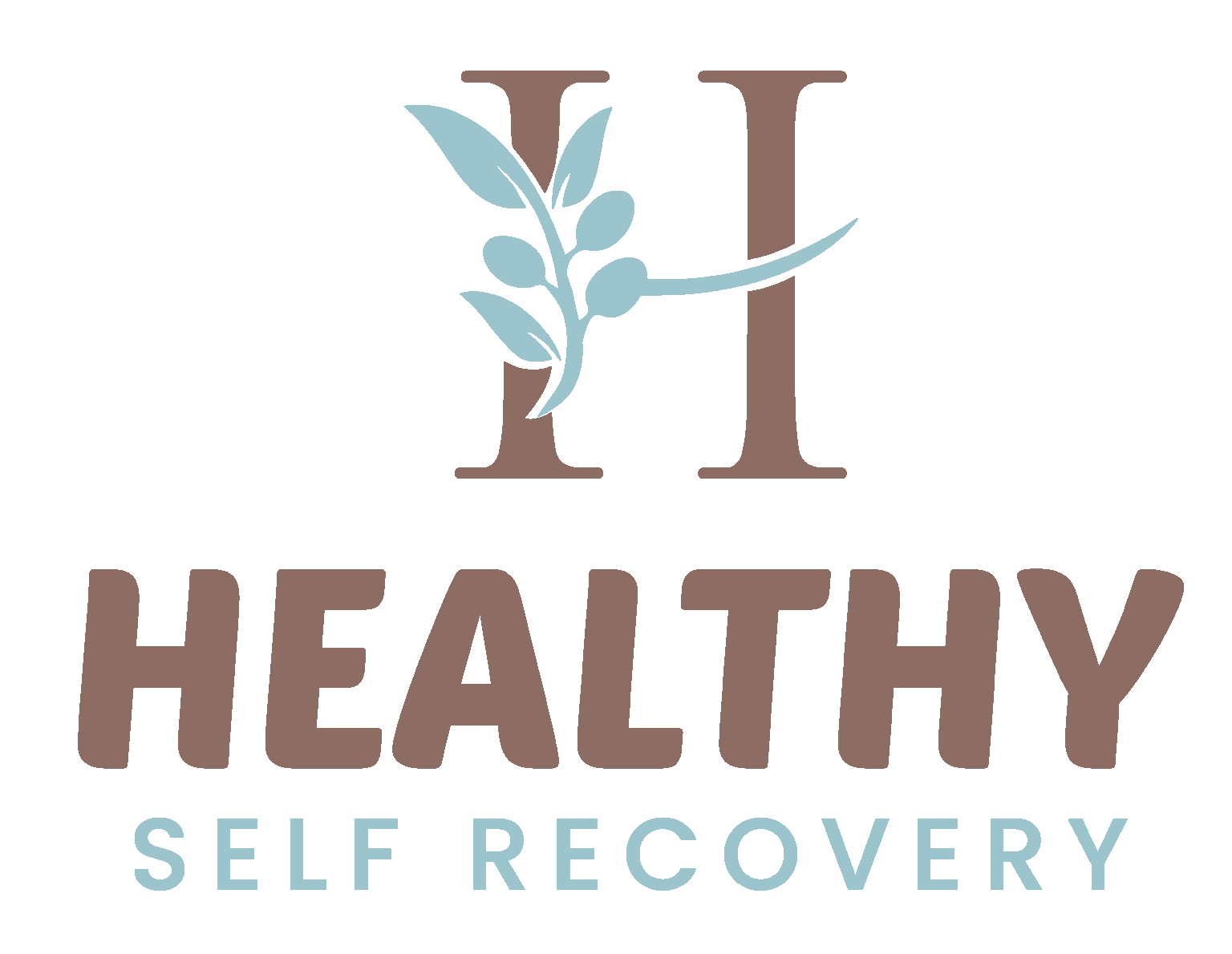In a world dominated by diet culture, unrealistic beauty standards, and where thinness has been elevated to a moral virtue, recovering from an eating disorder can feel like swimming against an incoming current. However, approaching recovery holistically can make the difference in achieving genuine, sustainable recovery.
A holistic approach addresses the whole person, not just their eating disorder. True recovery is not simply the elimination of eating disorder symptoms, behaviours, and thoughts, but rather it builds emotional resilience, self-compassion, and cultivates a deeper sense of purpose. Holistic recovery means that a person comes out not just physically stronger but emotionally equipped to manage life’s challenges going forward.
Working with a certified coach can be pivotal to recovery. Coaches understand how complex the journey is and recognize that the work extends far beyond thoughts and behaviors around food. They provide comprehensive support that touches on the physical, emotional, mental, and even spiritual aspects of healing. All of these areas, when addressed together in eating disorder recovery coaching, collectively shape how people see themselves. This self-perception directly impacts their relationship with food and their body.

Core Principles of a Holistic Approach to Recovery
Personalised Care
Personalised care recognises that while eating disorders share many common thoughts and symptoms, each person’s experience is unique. Because of this, their recovery needs and priorities will also be unique. Even though certified coaches receive specialised training in eating disorders, and many have had their own personal experience, personalised care means approaching each person with a fresh perspective. It’s about taking the time to learn and understand the unique nature of their eating disorder, rather than making assumptions.
Integration
Addressing all aspects of an eating disorder rather than isolating symptoms. Because so many factors play a role in eating disorders, a multidisciplinary approach of psychotherapy, medical interventions, working with a specialist eating disorder dietitian, and, more recently, the valuable addition of a certified coach with lived experience are vital to address all aspects of an eating disorder.
Recovery is most effective when all the different elements of care are integrated seamlessly. A coach works alongside medical professionals to help ensure that care is cohesive and well-coordinated. They also support you in the work you’re doing with each provider. For example, a client might work with a therapist to address underlying trauma or issues that contributed to the eating disorder. At the same time, they may work with a coach to focus on eating disorder behaviors, build self-esteem, and develop coping skills.
Similarly, a client might partner with a registered eating disorder dietitian to create a nutritional plan. The coach then helps implement that plan in daily life and supports the client in managing the anxiety that often comes with it.
Integration means that true recovery is not just the lack of physical and mental symptoms, but working on ensuring that eating disorder mindsets no longer affect any aspects of a person’s life. Coaches recognise that the effects of eating disorders are widespread and seep into all aspects of one’s life – work, relationships, money, sex, and work closely to identify where scarcity mindsets show up.
Self-Compassion
Learning to be kind toward oneself is a key building block to healing. When someone suffers from an eating disorder, they often have a relentless inner critic and are consumed with self-criticism and feelings of unworthiness. Learning to extend the same care and compassion to oneself that one would offer to a friend or loved one is a powerful antidote to negative thought patterns. By learning to practice self-compassion is the start of building a more balanced and accepting relationship with oneself.
Mind-Body Connection
Eating disorders often develop as a way to numb out thoughts and feelings and rely on ignoring and overriding bodily signals such as hunger and fullness. True recovery involves (re) learning to become aware of physical sensations and emotions. This requires developing healthy coping mechanisms for difficult emotions, rebuilding trust in one’s body, and understanding how to respond appropriately to its signals.
An essential part of recovery is recognising the connection between physical symptoms and emotions. So often, stress and anxiety show up first in physical sensations or thought patterns before we consciously recognise them. Learning to identify these connections and respond without resorting to eating disorder behaviours is a crucial part of healing.
3 Key Aspects of Holistic Eating Disorder Recovery Coaching
1. Physical Well-Being:
Restoring proper nutrition, re-establishing trust with your body, and understanding and responding to your body’s physiological needs are fundamental to recovery. The foundation of all of this is nutritional rehabilitation. Regardless of your current weight, if you’re struggling with an eating disorder, you’re likely experiencing energy depletion as your body operates below its set point. The early recovery journey centers on replenishing this energy debt and providing your body with resources to repair systems and organs compromised by prolonged restriction or binge/ purge type behaviours.
An eating disorder recovery coach plays an important role in your healing process. They work closely with your registered eating disorder dietitian to help you follow your nutrition plan every day. Together, they help you understand why your body needs more energy during this phase, even more than what’s considered typical. They also make sure you’re eating all food groups and following a regular eating schedule.
A coach can support you during meals or help you stay on track by checking in to make sure you’re eating your meals and snacks. They also offer emotional support and practical tips through instant messaging when eating or dealing with food feels overwhelming. As you move forward in recovery, coaches help you face fear foods and try different food situations. This makes your recovery more realistic and sustainable in everyday life.
Reframing Exercise and Exploring Gentle Movement
Exercise and movement can be a great source of strength and joy; however, more commonly than not, in an eating disorder, this relationship gets distorted, and exercise and movement become compulsive and punishing.
In the early stages of recovery, a break from exercise and complete rest is more often the healthiest thing that one can do for one’s body. Continuing with a gruelling exercise regime when one’s body is malnourished is not healthy. As nutritional rehabilitation occurs, coaches work with clients to lay the foundation for a more balanced relationship with exercise. This often involves coaches working together with you to:
- Exploring Gentle Movement Practices: Practices that enhance relaxation, body awareness, and provide opportunities to reconnect with one’s body in a more gentle and compassionate way.
- Establish Boundaries: Setting boundaries around exercise is crucial in recovery. This could look like setting limits on type, time, or duration of exercise, having regular rest days, or indeed taking regular exercise breaks. Boundaries around exercise are important to prevent exercise from eroding progress in recovery and relapsing back into compulsive, obsessive exercising.
- Reframing the Goal of Exercise: Shifting the focus of exercise from calorie burning or body sculpting to how exercise actually makes you feel is pivotal in creating a positive, balanced relationship with exercise. Rather than engaging in exercise that is depleting, coaches will work with you to pinpoint exercise that feels fulfilling, enjoyable, and nourishing.
How Eating Disorder Coaches Can Help
Eating disorder recovery coaches play a vital role in restoring physical well-being. They assist with setting realistic, manageable goals and help not only to identify the necessary actions but help to ensure these are achieved. They offer consistent accountability and immediate support through messaging to help manage the overwhelm and anxiety related to changing your food behaviours and habits. Coaches also help clients to stay motivated through this challenging part of recovery and help them to acknowledge and celebrate the wins. Coaches are also key to helping address disordered relationships with exercise, as these are often key contributors to eating disorders and help clients move towards a more gentle, joyful, balanced relationship with movement.

2. Rewiring The Mind
Eating disorder recovery coaching plays a big role in helping people change the thought patterns and beliefs that drive eating disorder behaviors. Coaches gently guide clients in noticing and challenging unhelpful thoughts related to food and body image. These might include all-or-nothing thinking, perfectionism, overgeneralization, personalization, or catastrophizing.
By learning to recognize these thought patterns—and seeing that they often come from the eating disorder—clients can begin to shift them. With support, they can replace these thoughts with more balanced ones that support recovery and reflect the part of them that wants to heal.
Learning to cultivate self-compassion is a key aspect of this process, as it helps to reduce the shame, blame, and vicious self-judgment that often fuels disordered eating. Coaches also work hard to help individuals develop stress management techniques to help not only deal with the anxiety and emotional distress of challenging one’s eating disorder but also to cope with the stress and emotions that arise in everyday life. These could be mindfulness, meditation, grounding exercises, or defusion techniques, which provide a sense of calm, stability, and space from thoughts in the face of emotional upheaval.
A recovery coach helps you reshape negative thought patterns and share practical tools to reframe challenges in a new light. Having walked the path of recovery themselves, coaches provide genuine empathy and a judgement-free environment where you can safely explore and question the beliefs that may be holding you back. This creates an environment where your inner strength and resilience can shine through, helping you to create meaningful change in your life.
3. The Emotional Aspect of Healing
Recovery from an eating disorder is an emotional and often difficult journey. Working with a coach means having support from someone who has likely been through a similar experience. They’ve probably had the same thoughts and feelings as you.
A coach offers a caring, non-judgmental space where you can talk about the hard thoughts and emotions that often come up during recovery. This kind of support helps build trust. And with that trust, coaches can help you become more aware of your emotions and learn better ways to cope. For example, they can teach you tools to handle painful feelings and stressful situations, without turning to food or harmful behaviors to escape or numb out. They might suggest journaling to help you understand your feelings and needs. They may also introduce mindfulness to help you stay present and treat yourself with compassion. Learning how to notice, accept, and manage emotions is what helps build resilience and self-trust.
Eating Disorders Can Be Isolating
Eating disorders are very isolating. The more someone isolates, the more it seems that the only thing they have to turn to is their eating disorder. Part of the coaching benefit is the ability to create a connection with someone who has a deep understanding of what you are going through and is able to truly see you beyond the eating disorder. Having this connection is a stepping stone to starting to reconnect with other people in your life. This is a crucial part of recovery, reaching out to others and building connections as opposed to turning inward to the eating disorder is what essentially puts the eating disorder out of a job. With these new coping skills, recovery becomes not just about changing behaviors around food, but learning to meet oneself with curiosity and kindness, and to respond to life’s challenges in sustainable ways.
In summary, recovery coaching provides ongoing emotional support, encouraging clients to explore their feelings without judgment, fostering growth and resilience.
How Eating Disorder Recovery Coaching Enhances a Holistic Approach
Eating disorder recovery coaching bridges the gap that traditional treatment might miss. Coaches work with clients to clarify recovery goals and objectives, develop personalised strategies, and maintain motivation during the recovery journey.
Holistic Eating Disorder Recovery Coaching:
- Set realistic goals
- Achieve those goals
- Support and facilitate behaviour change and new habit formation
- Provide accountability and encouragement
- Empower clients to take an active role in their recovery
- Connect mental, emotional, and physical strategies into a cohesive plan
Working with a certified eating disorder recovery coach at Healthy Self-Recovery, clients feel seen as a whole person and supported in navigating the often challenging path to recovery. If this is something you would like in your recovery journey, please reach out. I would love to help.

Take the Next Step in Healing with a Whole-Person Approach to Eating Disorder Recovery Coaching in the UK or Online Globally
You don’t have to face your eating disorder alone, eating disorder recovery coaching support is available. At Healthy Self Recovery, our coaching practice offers personalized guidance to help you shift harmful behaviors and build a stronger relationship with food and your body. Take the next step toward lasting recovery by working with someone who truly understands the path forward. Follow these threee simple steps to get started:
- Contact me to schedule a free discovery call to see if Eating Disorder Recovery Coaching is right for you.
- Begin meeting with me, Marianna Miles, a British Eating Disorder Recovery Coach
- Start healing with guidance!
Additional Supportive Coaching Services at Healthy Self Recovery
At Healthy Self Recovery, I provide individualized coaching to guide you through eating disorder recovery with understanding and care. Sessions focus on easing food-related anxiety, building emotional resilience, and offering real-world tools to support your everyday life—all within a safe and compassionate space. With consistent check-ins and messaging support, you’ll feel supported every step of the way. I work in close coordination with your healthcare providers to make sure your recovery plan is truly personalized. Our work emphasizes lasting healing, a more balanced relationship with your body, and greater freedom around food choices. Coaching is offered across the UK—including England, Scotland, and Ireland—and is also available online for international clients.








